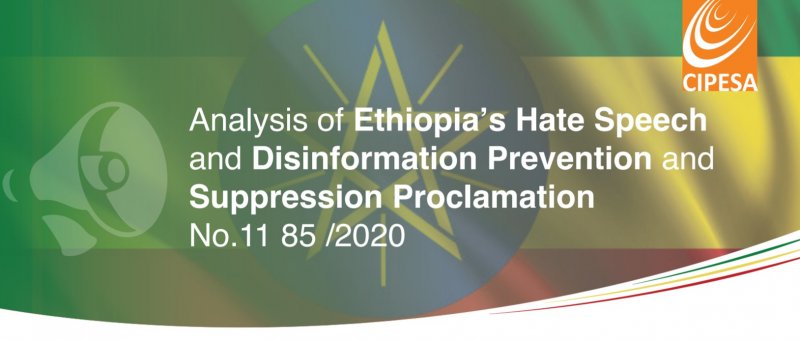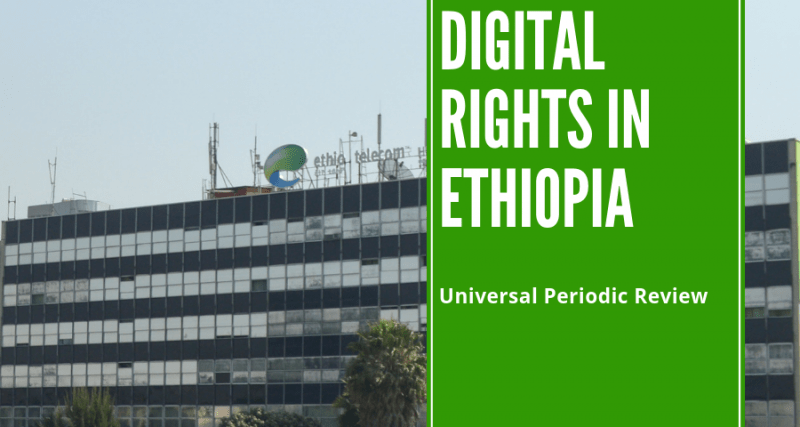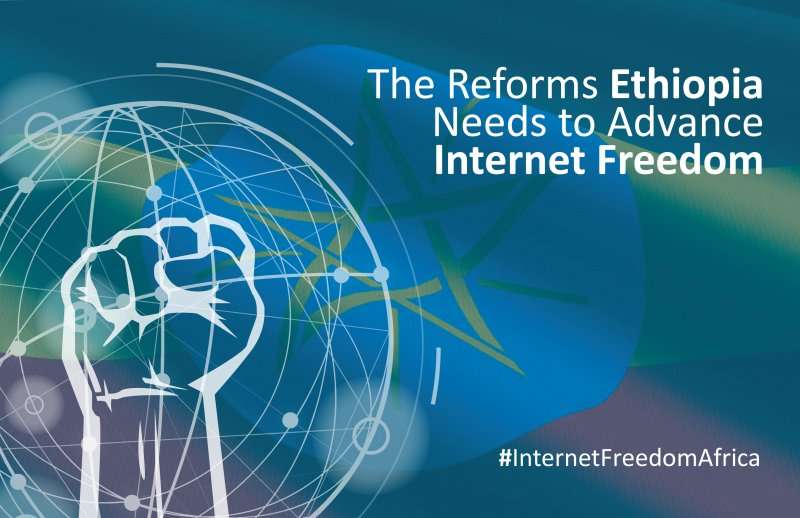By Edrine Wanyama |
In March 2020, Ethiopia enacted the Hate Speech and Disinformation Prevention and Suppression Proclamation to address hate speech and disinformation, which have historically troubled the country. However, whereas government regulation is legitimate to control hate speech, Ethiopia’s new law poses a threat to freedom of expression and access to information online.
The Proclamation appears well-intentioned judging from its objectives. These are stated as: “to protect freedom of expression while suppressing all forms of hatred and discrimination; promote tolerance, civil discourse and dialogue, mutual respect and strengthen democratic governance; and to control and suppress the dissemination and proliferation of hate speech, disinformation, and other related false and misleading information.”
In reality, besides having overbroad and ambitious definitions that are subject to misinterpretation and abuse, the new law also weighs heavily on social media users and intermediaries, and introduces harsh penalties, contrary to international human rights instruments, including articles 19 of the Universal Declaration of Human Rights (UDHR) and the International Covenant on Civil and Political Rights (ICCPR), and article 9 of the African Charter on Human and Peoples Rights.
The overbroad definitions in the law render it subject to discretionary interpretation by law enforcers such as prosecutors and courts, which creates fertile ground for abusing citizens’ rights to freedom of expression and the right to information. Shortly after it came into force, the law was used to charge journalist Yayesew Shimelis for allegedly attempting to incite violence by spreading false information contrary to article 5 of the Proclamation.
The law holds intermediaries liable for content policing, with article 8 requiring providers of social media services to act within 24 hours to remove or take out of circulation disinformation or hate speech upon receiving notifications about such communication or post.
Further, the law introduces harsh penalisation of hate speech or disinformation over social media accounts with more than 5,000 followers. The punishment prescribed is imprisonment of up to three years and 100,000 birr (USD 2,907), but where violence or a public disturbance occurs as a result of dissemination of disinformation, the punishment is “rigorous imprisonment from two year up to five years”.
The new law – as well as the internet shutdown imposed in the country at the end of June 2020 – go counter to the reform programme introduced by Prime Minister Abiy Ahmed, who took office in early 2018. Indeed, some suggested that the indictment of Shimelis under the new law might be politically motivated.
In a country with a history of severe restrictions to digital rights and freedoms, censorship, as well as persecution and prosecution of journalists, the likelihood for the new law to become a tool of suppression is high.
In this brief, CIPESA outlines the problematic provisions of the Proclamation and calls upon the government to amend or repeal the law.




